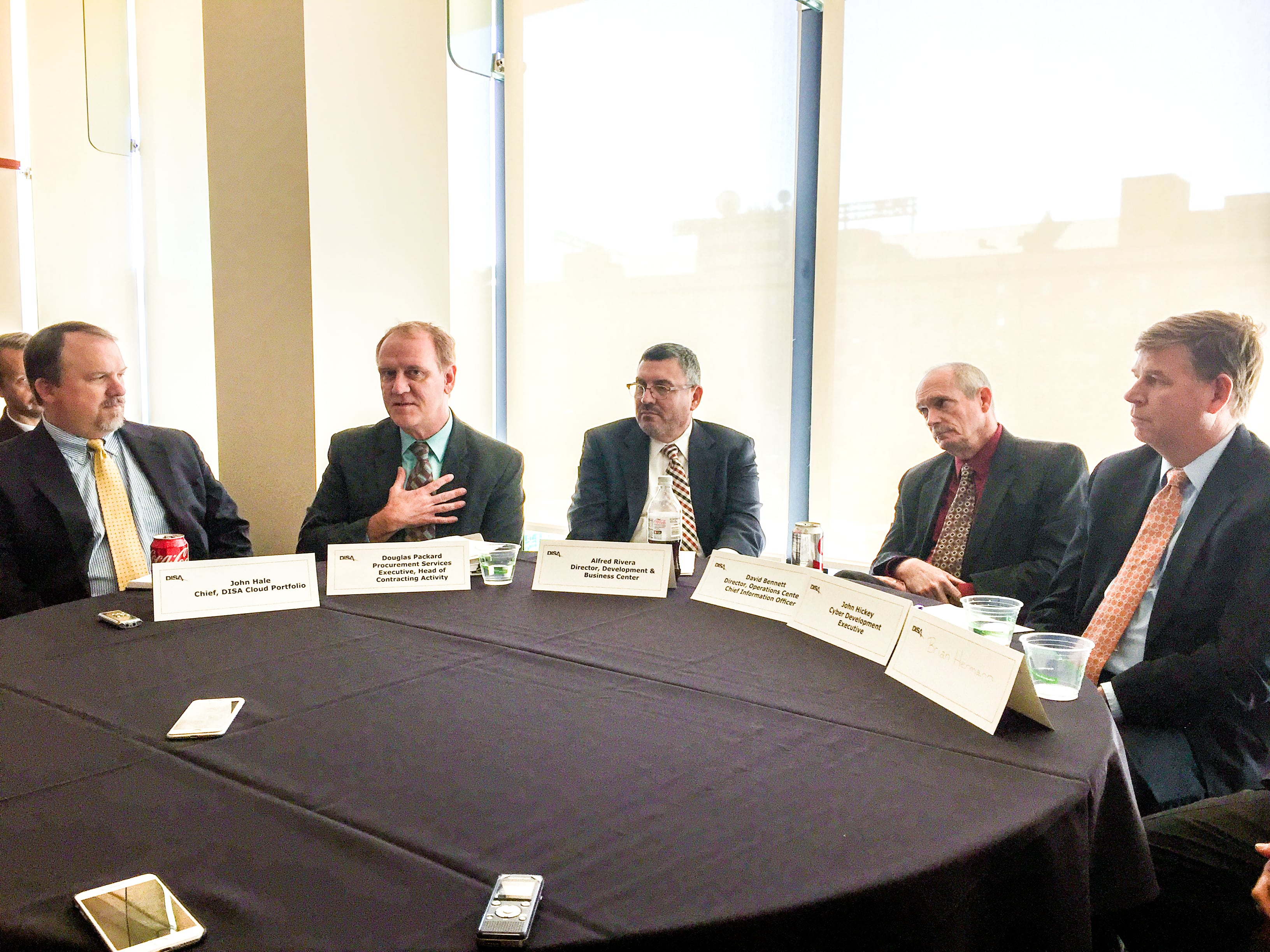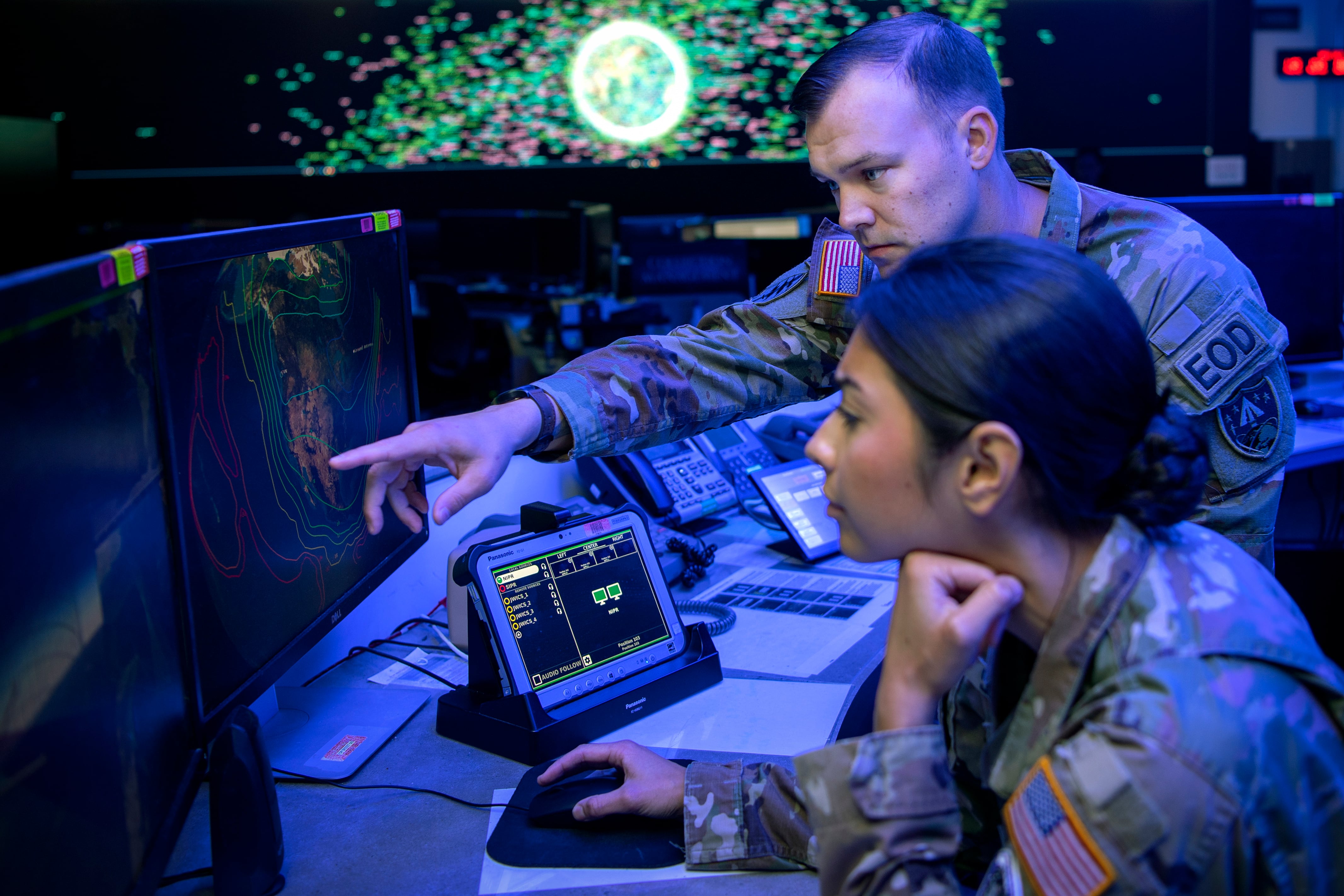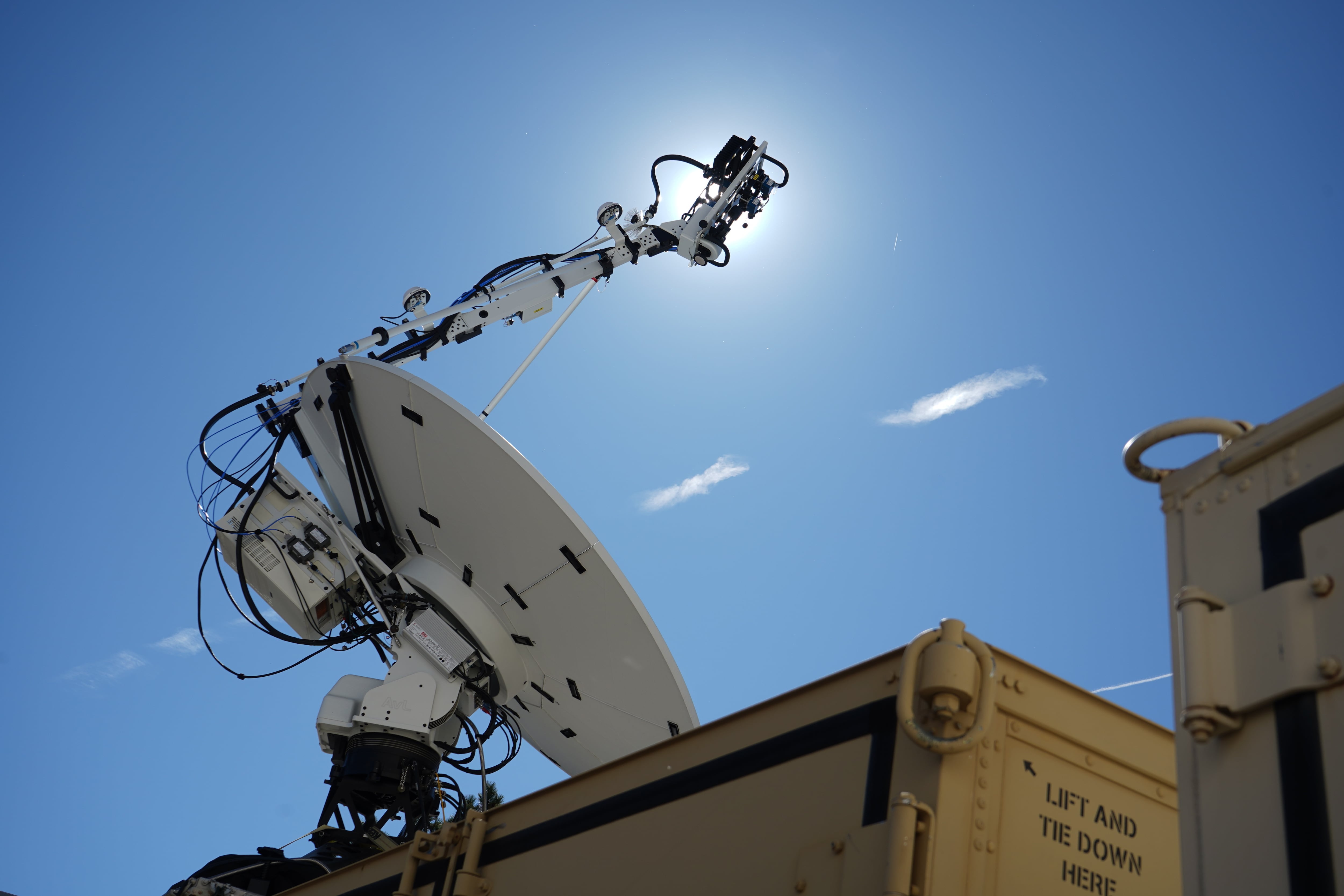The Defense Information Systems Agency for years has been working on unified capabilities (UC) that link Defense Department users across the enterprise, and the effort is evolving into a search for integrated collaboration tools that can accommodate a variety needs and capabilities.
"What we're really trying to do here is bring together the capabilities that we have right now…I would say that they're collaborative capabilities," said Brian Hermann, chief of DISA's enterprise-wide services division. "They include office productivity suites as well as traditional videoconferencing and voice across the network. But now there are sets of capabilities that we believe can all be integrated, and it's not because we think it should be integrated, it's because that's the way industry offers those things now."
Hermann, who spoke to reporters Nov. 17 at DISA's Forecast to Industry in Baltimore, acknowledged that the integrated, collaborative focus requires some shifts in technology and acquisition strategy – but it's a cultural shift as well.
"We need to stop having separate capabilities that don't talk to each other and integrate those capabilities. And we need to adopt them as enterprise-wide capabilities and accept the fact that we take them as they come to us and as industry offers them, instead of highly customizing those capabilities," Hermann said. "That's a big change for us. It means we have to change the way we work in order to use commercial tools. But the upside is we have a reduced security boundary and we have the benefit of staying current with commercial technologies, so there's reduced costs there as well."
DISA officials originally sought a replacement for the existing DoD enterprise email system, but after strong feedback from industry, they decided to focus on acquiring a suite of collaborative tools that are adaptable to new technology, a range of devices and different missions. The result is an upcoming draft request for proposals for Defense Enterprise Office Solutions expected in the second quarter of fiscal 2017. A contract award is expected in fourth quarter of fiscal 2018.
"The whole goal is a collaborative environment where you can have all of those voice and video conferences, all your productivity, with a single sign-on available whether it's on your desktop or a mobile device," Hermann said. "DEOS is our next step in the UC evolution. But I never think it will be the last step."








